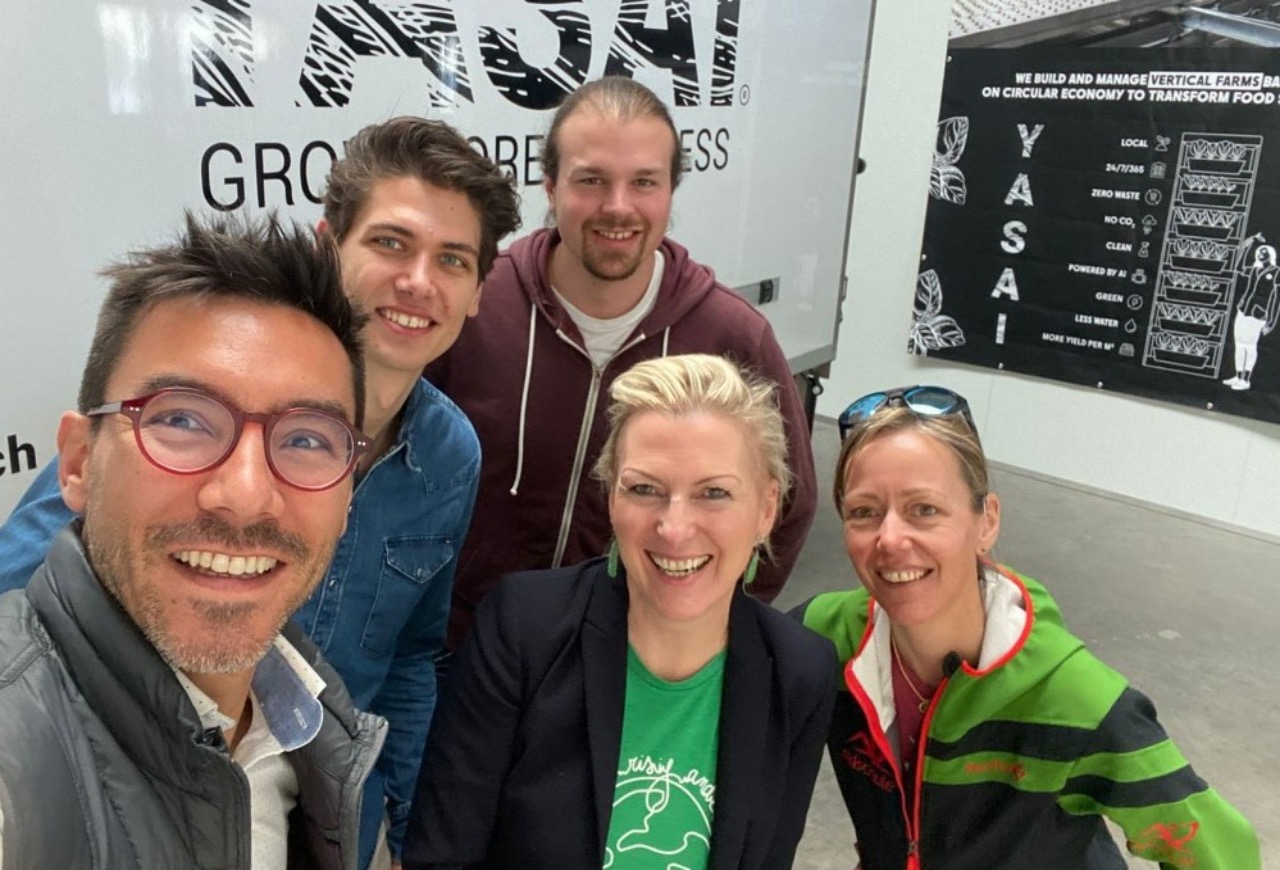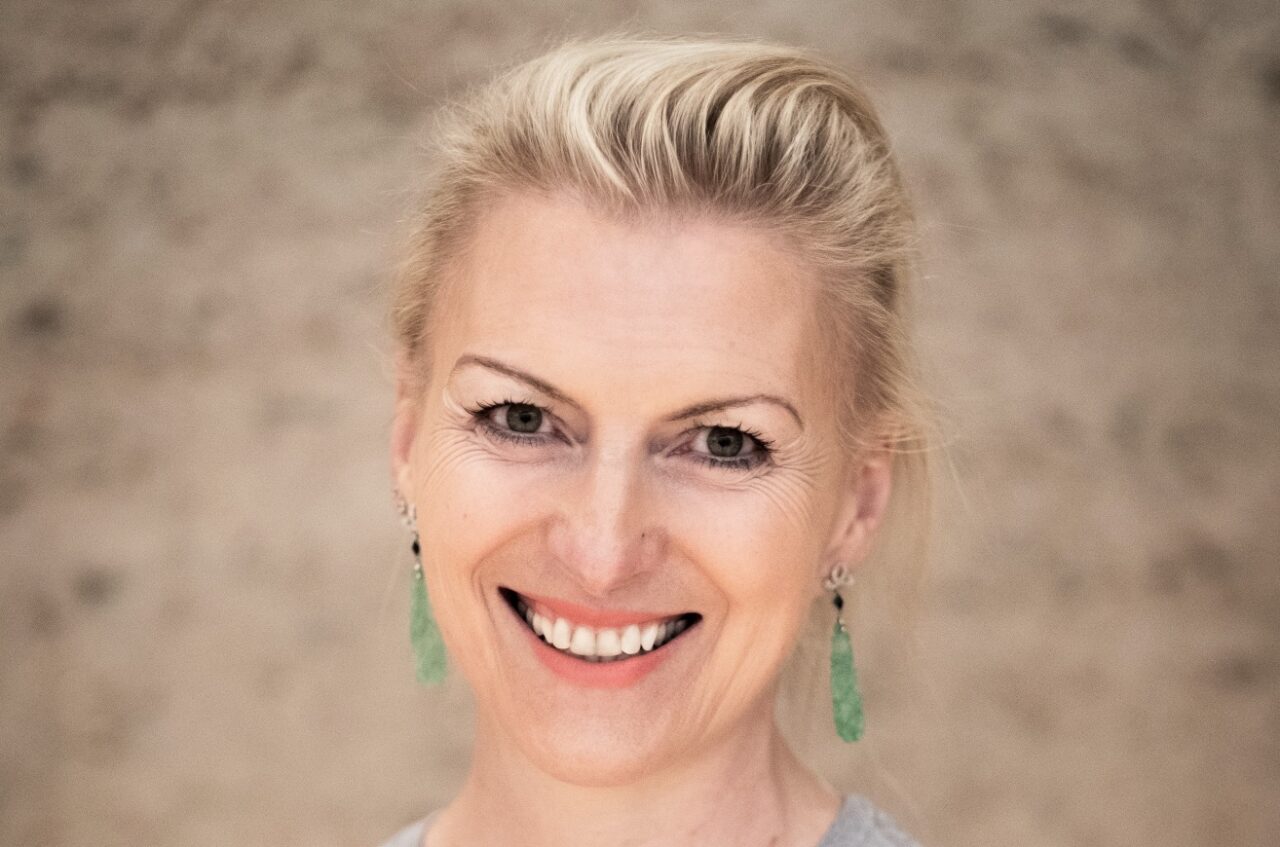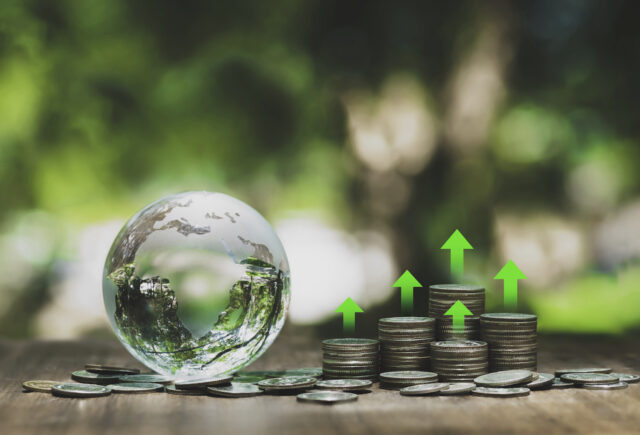Christin ter Braak-Forstinger, founder and CEO of Chi Impact Capital, talks about combining social impact and financial returns and the need for a more holistic approach to impact investing to achieve the SDGs

CV
- Co-founder and CEO, Chi Impact Capital, 2017 – present
- Founder and CEO, PVA Advisory, 2010 – 2017
- Group head of legal, RobecoSAM, 2009 – 2010
- Director private label funds, Julius Baer, 2006 – 2009
- Mandated consultant and investor, Equity Resource Investments, 2005 – 2006
“Things are all connected in life”, says Christin ter Braak-Forstinger about how she ended up in Zurich, developed a passion for what she calls ‘conscious investing’ and founded Chi Impact Capital where she remains as its chief executive.
Originally from Austria, ter Braak-Forstinger completed her PhD at Harvard Law School and worked for a Massachusetts private equity firm, before moving to Zurich and getting a job with Julius Baer in 2005.

In parallel, together with three other women, she started working on a project in northern Ghana to abolish illegal orphanages and reintegrate orphans and vulnerable children into their extended families, which eventually launched as the non-profit BraveAurora in 2009.
But it was while at the Swiss private bank, working in the fund structuring team with wealthy clients in 2008, that she first came into contact with impact investing.
“One day, having recently come back from a trip to Ghana with BraveAurora, my boss turned to me and said ‘Christin we have this unusual request from a family office who want a fund structure that brings them a social as well as a financial return. You’ve recently come back from Africa, we think you should look into this’,” she explains.
“My first thought was how amazing would it be to combine financial returns and social impact. And that fire has never been extinguished.”
From B-Corp to ‘Chi-Corp’
She left Julius Baer to work for sustainable investment manager RobecoSAM, before launching her own impact advisory business, PVA Advisory.
“Robeco were managing great sustainability funds but they were very much in the listed space and I was more interested in the hands-on collaboration with companies.”
At PVA Advisory, she advised large NGOs, family offices, private banks and other institutional investors on strategic philanthropy as well as impact investment, which she says helped her grow her network across the DACH region.
“We have this mantra about moving companies from B-Corp to ‘Chi-Corp’ to become more conscious businesses and we achieve this by bringing a holistic impact value creation package to the table”
Christin ter Braak-Forstinger, Chi Impact Capital
When Chi Impact Capital was launched in 2017, it absorbed PVA’s advisory business into its structure. But the primary goal for ter Braak-Forstinger and co-founder Anita Keij was to set up a fund that could generate deep systemic impact through the companies it invested in.
The ‘Chi’ in the company’s name stands for ‘Conscious Holistic Impactful’ investing. The need to develop a more holistic approach to impact investing to achieve the 2030 goals was the first premise in the decision to launch their first fund, the Burning Issues Impact Fund (BIIF), in 2020, says ter Braak-Forstinger. The second was that deep, systemic impact could be achieved alongside strong financial returns.
“When I set out on this journey, there was a lot of noise about how interesting impact investing was but that you couldn’t make any meaningful financial returns. With Chi we have set out to prove the naysayers wrong,” she says. “We have this mantra about moving companies from B-Corp to ‘Chi-Corp’ to become more conscious businesses and we achieve this by bringing a holistic impact value creation package to the table.”
She says that as well as impact measurement and monitoring and a commitment to long-term collaboration with the companies they invest in, the firm also includes impact in their discounted cash flow valuation model “to prove that companies with impact ingrained in their product and service offer, perform better financially over time”.
The firm also applies both gender and biodiversity lenses to the companies they invest in. “This doesn’t mean we only invest in female-led teams but we do look for an openness from the companies we invest in on these topics,” she says
Burning Issues Impact Fund
ter Braak-Forstinger, who is also a university lecturer on impact investing and author of ‘Conscious Investing’, says the research for this book in the early days influenced the strategy for BIIF.
“The book shaped the whole thinking for the fund strategy because it highlighted the investment gap in companies that can really drive change towards a regenerative economy and completely transform the sectors they’re operating in.”
Nixdorf Kapital, a Munich-based family office, provided the umbrella structure to launch the fund, which has a mandate to invest in between 10 to 15 mid to late venture and early-growth stage companies sourced from across Europe, in five areas: circular economy and conscious commerce; green innovation and climate tech; food tech and food waste reduction; affordable healthcare; and smart building and infrastructure.
The company has screened more than 800 companies, with a shortlist of 80 companies currently in the pipeline for further due diligence. The team favours ‘tech-leaning’ companies that are scalable and conducts lifecycle analysis to better understand their impact potential. Post-investment the team defines three impact KPIs with each company, which are measured and monitored using the GIIN’s IRIS+ metrics.
The fund carry is paid on reaching a predefined impact target across these KPIs, as well as a financial hurdle rate and is overseen by an impact validation committee.
The fund has so far invested in Netherlands-based biotech company Mosa Meat, which has developed cultured lab-grown meat, Germany’s Vytal, which produces reusable and sustainable packaging solutions for take-away meals, Yasai, a Swiss agri-tech company developing smart vertical farming solutions, and Neoom, an Austrian climate tech company building energy storage, infrastructure and management solutions.
The fund is targeting a final closing of €30m which ter Braak-Forstinger says they hope to reach by June 2023, with plans to launch a second fund at the same time.
First-time fund bias holding back the market
ter Braak-Forstinger says that despite representing a relatively small fraction of the sustainable investment marketplace, impact investment is firmly on the path to becoming mainstream across Europe. She attributes this to a large extent to a change in investor perception following the Covid-19 pandemic.
“The momentum is here and it has never been stronger. We have also seen what a crisis like the pandemic can do to the supply chain side, so we also see a greater investment appetite for local and resilient businesses to solve the issues on our doorstep here in Europe on top of those in emerging markets,” she explains.
She says that one of the biggest obstacles for the market is first-time fund bias. “We often hear ‘we really like what you’re doing and for the second fund we’re in but not for the first’. This has to change. Studies show that first-time funds have a massive potential to outperform and we need a lot more investment vehicles if we are to keep to the SDGs 2030 timeline.”






